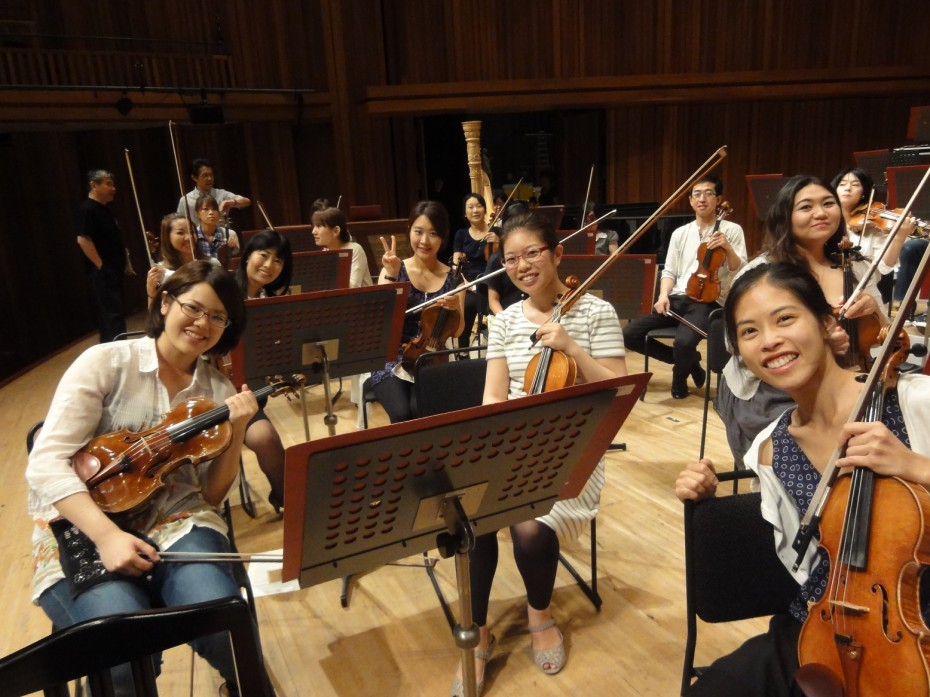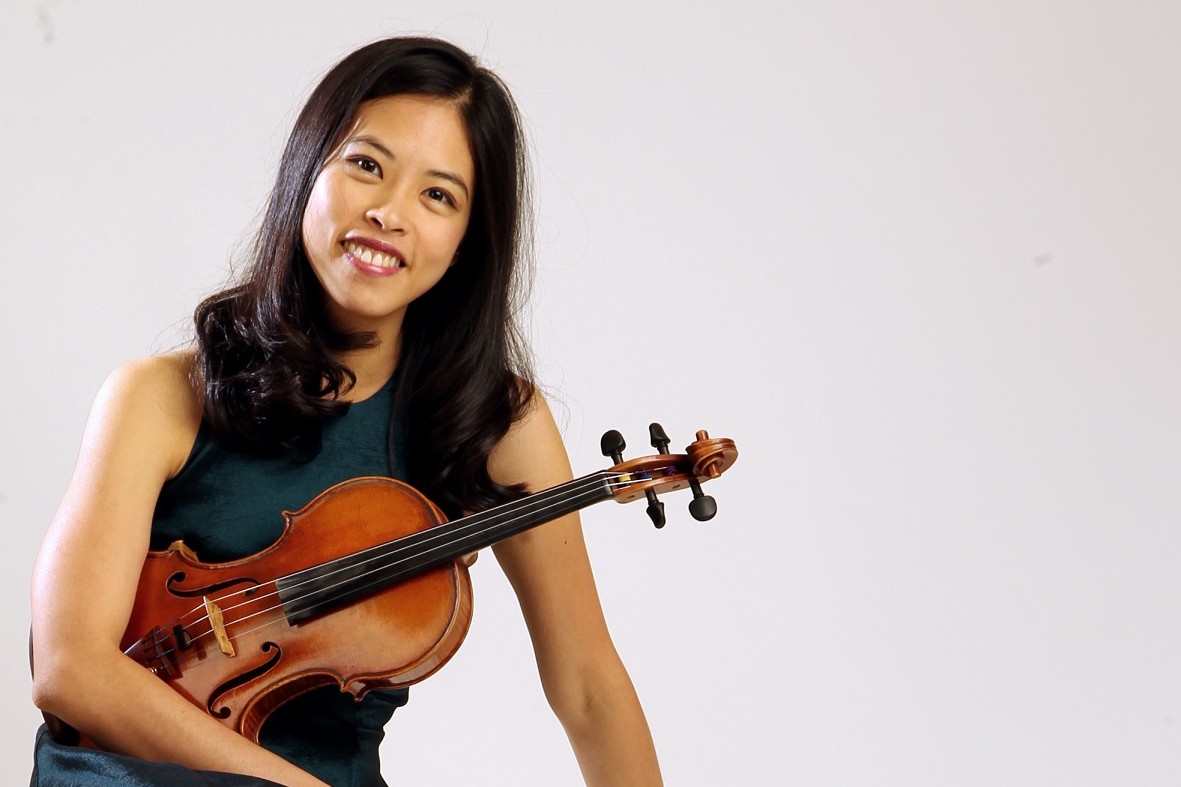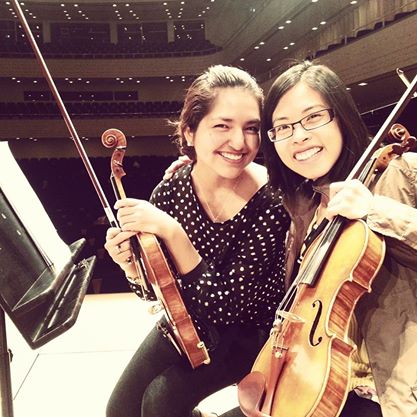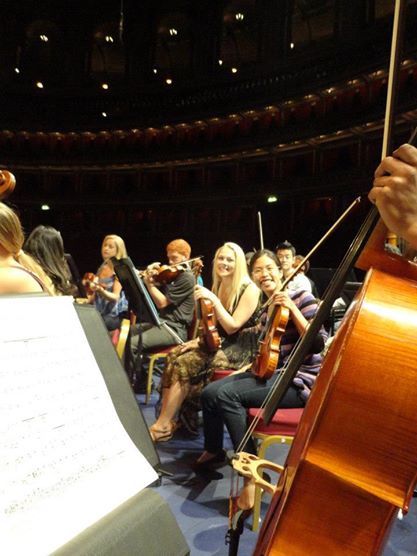By CATHERINE SIOW
AT age 29, Ooi Khai Ern has come a long way in becoming a violinist. She recalls her formative years of fun family time “performing” with her parents and elder sister.
“Dad likes singing opera and mum used to play the piano and taught a bit. I grew up listening to my dad belt out songs from musicals and operas. At one point the whole family sang together at the Philharmonic Society of Selangor Choir!” said the petite Ooi, who started playing with the Malaysian Philharmonic Orchestra (MPO) as a substitute last October.
Ooi was six when her parents sent her and her sister for violin and piano lessons.
Ooi’s sister went on to become an IT professional, following in the footsteps of her father who is an engineer by profession.
“It was fun trying to picture the crazy Mozart himself conducting and his wife singing”
But Ooi fell in love with the violin soon enough, and today, her talent has taken her to some of the most iconic concert stages around the world.
“I was about 11 when I started to take the violin seriously. I had teachers and friends that shared a real love and excitement for classical music.
“We were – and I still am – absolute nerds, talking about composers and pieces and exchanging CDs and cassettes!” said Ooi, who has a Performer Diploma, Master of Music and Bachelor of Science from the Jacobs School of Music at Indiana University, the United States.
Ooi was one of the violinists at the Hyogo Performing Arts Center Orchestra in Japan from 2011 to 2014. Prior to that she was the assistant concertmaster at the Civic Orchestra of Chicago for a year, and she held the same position at the Terre Haute Symphony Orchestra while completing her graduate studies.

Ooi with her colleagues at her last day of work in Japan, where she had been performing and touring from 2011 to 2014.
After 13 years of studying and performing abroad, she moved back to Malaysia and started playing with the MPO after her contract in Japan ended last year.
The freelance violinist, as Ooi calls herself now, has also performed in major festivals in Lucerne, Edinburgh and Spoleto, and in venues like Carnegie Hall in New York and the Royal Albert Hall in London.
“Playing in the orchestra there was so much fun. It is an under-35 international academy orchestra of sorts, and we mostly lived at the same apartment complex.”
She was the only Malaysian representative in both the Aldeburgh World Orchestra and the Commonwealth Strings Project, ensembles that were put together in conjunction with the 2012 London Summer Olympics and the 2014 Glasgow Commonwealth Games respectively.
She has appeared on national television and radio broadcasts in Japan, Britain and the US, and played under many conductors, a list that includes luminaries like Pierre Boulez (a Lifetime Achievement Award recipient at the recent 2015 Grammy Awards), Esa-Pekka Salonen, Sir Neville Marriner, Vladimir Ashkenazy and Lorin Maazel.
“I’ve been blessed to have had lots of amazing experiences playing great music all over the world. I clearly remember the awe when playing Mozart’s Great Mass at the Salzburg Festival, the same church it was first premiered in.
“It was fun trying to picture the crazy Mozart himself conducting and his wife singing. It was also 2006, the 250th anniversary of his birth – it was Mozart overload everywhere!” recalled Ooi.
Some of her fondest memories, however, are from the “less glamorous” events.
“After a small performance in a church, school or nursing home, when someone tells me how much what I played meant to them or how the music moved them – that’s why I became a musician. My job is to use music to help listeners connect, heal and think,” she said.
Ooi lived in Chicago, US for a year before moving to Japan, and one of her jobs was teaching after-school group violin classes at public schools, one of the most challenging things she has ever done.
“My classes were a swarm of unruly four to 10-year-olds, mostly inner-city black and Latino kids, and up to 20 of them at once.
They had strange and beautiful names, like Julu and Nyelah and Osita.
“There is a real feeling of achievement and relief when a student manages to have a decent-looking bow hold for 10 seconds. Or when the class crier actually manages not to cry for an entire class,” said Ooi, who aspires to start a violin school for orphans.
It would take another page to talk about her goals and one more about her three years in Japan, where her workplace was “a beautiful 2,000-seater wooden hall with a full double backstage and wing space capable for the most lavish opera or ballet sets, and pretty much every concert was sold out”.
“Playing in the orchestra there was so much fun. It is an under-35 international academy orchestra of sorts, and we mostly lived at the same apartment complex,” she said.
The MPO has been a different but equally exciting experience, as it’s a more “international” environment.
“It’s fun trying to figure out if my colleagues are speaking Russian or Spanish or Dutch. It is an amazing group of musicians, one of the best orchestras in all of Asia-Pacific. It is definitely a cultural gem in the region. I was in my early teens when they started out, and I used to go to their concerts almost every week. I was a complete MPO nut. So it’s especially nice being on the other side of the hall and playing with some of the same guys I used to watch,” said Ooi.










Tell us what you think!